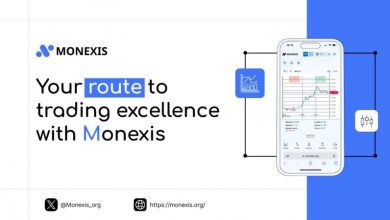Custom Software Development: A Strategic Investment for Business Growth

In today’s hyper-competitive digital landscape, organizations are under constant pressure to innovate, streamline operations, and deliver personalized customer experiences. Off-the-shelf software often falls short in meeting these unique business requirements, making custom software development an essential strategy for forward-thinking companies.
Partnering with a reliable custom software development company empowers businesses to build scalable, secure, and tailor-made solutions that align precisely with their operational needs and long-term goals. This article delves deep into the significance of custom-built software, the benefits of bespoke development, and why choosing the right custom software development agency can determine the success of your digital transformation journey.
What is Custom Software Development?
Custom software development refers to the process of designing, building, deploying, and maintaining software that is created specifically for a particular user, organization, or function. Unlike commercial off-the-shelf software (COTS), which is designed for a broad audience, custom software is engineered to solve a company’s specific problems or fulfill its unique requirements.
For instance, a logistics firm may need a centralized platform that integrates route planning, inventory control, and real-time vehicle tracking. Such specific needs often cannot be fulfilled by generic software, making custom software solutions the most effective alternative.
Why Businesses Choose Custom Software Over Off-the-Shelf Products
There are multiple strategic advantages associated with investing in custom software development services:
1. Tailored to Business Needs
One of the biggest benefits is that the software is built to match your exact processes, workflows, and user demands. Whether it’s a CRM tailored to your sales cycle or a supply chain tool designed for your logistics framework, custom software solutions offer unmatched personalization.
2. Scalability and Flexibility
As your business evolves, so do your requirements. Off-the-shelf software often struggles with scalability, while custom applications are built with flexibility in mind. A professional custom software development company will ensure the application grows with your organization and adapts to future changes.
3. Competitive Advantage
Custom software can become a core part of your business strategy. It enables unique features and capabilities that differentiate you from competitors. This strategic edge can be the difference between leading your industry or falling behind.
4. Enhanced Security
Generic software is more prone to vulnerabilities as it is widely used and targeted by attackers. Custom-built applications allow for the integration of advanced security protocols tailored to your industry compliance requirements.
5. Integration with Existing Systems
Most enterprises rely on a variety of digital tools. Custom software development services allow seamless integration with your current tech stack, improving data flow and automation.
Types of Custom Software Solutions
A well-established custom software development company can deliver a broad range of bespoke applications tailored to specific business models and workflows. These custom software solutions are purpose-built to handle the unique demands of each sector, with a focus on scalability, security, and performance. Some of the most common types include:
1. Enterprise Resource Planning (ERP) Systems
Custom ERP software centralizes all critical business operations such as finance, HR, supply chain, and inventory management into a single, unified platform. These systems are particularly vital for medium to large enterprises that need to streamline cross-departmental workflows and enhance data visibility.
2. Customer Relationship Management (CRM) Platforms
Tailor-made CRMs help organizations better manage client interactions, sales pipelines, marketing campaigns, and support services. Unlike generic CRM systems, custom-built platforms can integrate with your internal tools, enabling seamless automation and enhanced user experience.
3. E-commerce and Retail Platforms
Retailers and digital commerce platforms often require features like personalized product recommendations, dynamic pricing engines, multi-vendor support, and third-party logistics integrations. Custom software development services provide highly scalable solutions tailored to the user behavior and business logic of each retail brand.
4. FinTech and Banking Applications
In the finance sector, companies need advanced systems for digital banking, mobile wallets, wealth management, algorithmic trading, fraud prevention, and blockchain integration. A custom software development agency can design secure, regulation-compliant applications that align with strict industry standards such as PCI-DSS or KYC/AML.
5. Healthcare Information Systems
Healthcare providers benefit from custom-built electronic health records (EHR), telemedicine portals, patient management systems, and compliance-ready solutions such as HIPAA-aligned apps. These applications are often integrated with wearable tech and IoT devices for real-time health monitoring.
6. Education Technology (EdTech) Platforms
Schools, universities, and online learning providers use custom software solutions like Learning Management Systems (LMS), virtual classrooms, gamified learning apps, and student information systems (SIS). These platforms can be adapted to support multiple languages, user types, and pedagogical models.
7. IoT-Enabled Applications
For industries like manufacturing, energy, and logistics, custom software that integrates with Internet of Things (IoT) devices is critical. These applications enable real-time data collection, predictive maintenance, remote monitoring, and intelligent automation.
8. Mobile and Web Apps
From native iOS/Android apps to cross-platform web applications, custom software development services can create applications that deliver optimal user experience and performance. These apps can be developed for both customer-facing and internal business use.
9. AI-Powered Solutions
Businesses increasingly demand software embedded with AI capabilities—such as chatbots, recommendation systems, or data analytics dashboards. A trusted custom software development agency can design AI-integrated platforms that drive smarter decision-making and automation.
The Custom Software Development Process
Creating a high-performance custom application involves a well-defined methodology. Here’s a breakdown of a typical software development lifecycle (SDLC) followed by top custom software development companies:
1. Requirement Analysis
This is where the foundation is laid. Stakeholders collaborate with the development team to define objectives, pain points, desired features, and KPIs.
2. Design and Prototyping
User interface (UI) and user experience (UX) designers create wireframes and prototypes that visualize the application’s layout and user flow.
3. Development
Using agile or DevOps methodologies, the software is developed in sprints. This phase includes front-end, back-end, and database development.
4. Testing and QA
Before deployment, rigorous testing is conducted to identify bugs, improve performance, and ensure security compliance. Unit tests, regression tests, and user acceptance testing are commonly performed.
5. Deployment
The software is deployed to the live environment. Depending on the project, this can be done in phases or as a complete rollout.
6. Maintenance and Support
Top custom software development agencies offer ongoing maintenance to fix bugs, release updates, and add new features as your needs evolve.
How to Choose the Right Custom Software Development Company
Selecting a capable and experienced partner is critical to the success of your project. Here are some key aspects to consider:
1. Portfolio and Case Studies
Review the company’s past projects to assess its expertise in developing similar applications. A strong track record is a good indicator of reliability and innovation.
2. Technological Expertise
Ensure the team is proficient in modern technologies like cloud computing, microservices architecture, artificial intelligence, blockchain, and more, depending on your project needs.
3. Agile Development Capabilities
Working with a custom software development agency that follows agile methodologies ensures transparency, flexibility, and faster delivery.
4. Security and Compliance
Your partner should prioritize data privacy and compliance with industry-specific regulations such as GDPR, HIPAA, or SOC 2.
5. Communication and Collaboration
Clear, consistent communication is vital for project success. Choose a team that offers dedicated project managers and collaborative tools to keep stakeholders informed.
Use Cases Across Industries
Organizations across virtually every sector are leveraging custom software development services to transform their digital operations. Here are some detailed industry-specific use cases demonstrating how tailored solutions drive growth and innovation:
1. Healthcare
Hospitals, clinics, and health tech startups use custom EHR platforms, mobile health apps, diagnostic AI tools, and patient portals to enhance patient care. These solutions allow real-time data sharing, secure doctor-patient communication, and automated appointment scheduling, while ensuring regulatory compliance (e.g., HIPAA).
2. Finance and Banking
Fintechs rely on custom software development to build mobile banking platforms, digital wallets, robo-advisors, and secure investment portals. Such applications are designed with encryption, user authentication, and audit trails, ensuring compliance with global financial regulations and enhancing user trust.
3. Retail and E-commerce
Retailers use customized e-commerce platforms equipped with AI-driven recommendation engines, omnichannel inventory tracking, loyalty programs, and payment gateway integrations. Personalized shopping experiences result in higher customer retention and conversion rates.
4. Education
From K–12 institutions to online course providers, educators need digital tools such as interactive learning apps, video conferencing platforms, and assessment tools. Custom EdTech solutions can be tailored to different curricula, grading systems, and accessibility standards.
5. Manufacturing
Manufacturers adopt custom software solutions to manage production schedules, optimize supply chain operations, and predict equipment failures using IoT and AI. These solutions increase operational efficiency, reduce downtime, and ensure quality control.
6. Logistics and Transportation
Fleet management systems, GPS tracking tools, real-time delivery tracking platforms, and warehouse automation systems are examples of custom logistics software. These applications improve route optimization, reduce costs, and enable end-to-end visibility of logistics networks.
7. Real Estate and Construction
CRM tools for property managers, real-time bidding platforms, virtual tours, and project management apps are customized to meet the specific needs of the real estate and construction sectors.
8. Hospitality and Travel
Hotels and travel agencies implement custom software development services to create booking engines, customer loyalty platforms, and personalized travel itineraries. Integrations with third-party services like airlines and payment providers further streamline the user experience.
These use cases clearly show how industry-specific custom software development supports innovation, enhances productivity, and builds long-term value.
Understanding the cost structure is critical when planning to engage with a custom software development company. The development cost can range significantly depending on multiple factors, and while it may require a higher upfront investment than off-the-shelf alternatives, the long-term benefits—such as operational efficiency, better user engagement, and reduced license fees—often lead to a greater ROI.
Key Cost Determinants:
- Project Scope and Complexity:
A simple internal dashboard may cost significantly less than a full-scale ERP or enterprise-grade mobile app with AI integration, APIs, and third-party services. - Technology Stack:
The choice of frameworks, languages, databases, and cloud services (e.g., AWS, Azure, Google Cloud) influences licensing costs and development time. - Design Requirements:
Advanced UI/UX design with animations, custom branding, and accessibility features increases time and cost. - Platform Type:
Developing native apps for iOS and Android separately costs more than building a cross-platform solution with Flutter or React Native. - Geographic Location of the Development Team:
Outsourcing to a custom software development agency in regions like Eastern Europe, India, or Southeast Asia can reduce costs while maintaining quality. - Maintenance and Support:
Ongoing updates, feature enhancements, security patches, and technical support are recurring cost considerations.
Choosing the right custom software development services ensures that your investment yields scalable, robust, and future-ready digital products tailored to your goals.
Future Trends in Custom Software Development
The digital ecosystem is rapidly evolving, and custom software development companies are embracing new technologies to stay ahead of user expectations and business demands. The future of custom development is being shaped by several transformative trends:
1. Artificial Intelligence and Machine Learning
AI and ML are no longer optional; they are becoming integral to modern custom applications. From intelligent chatbots and automated workflows to predictive analytics and personalization engines, custom solutions are increasingly infused with AI to enhance automation and decision-making.
2. Cloud-Native Development
Cloud-first approaches are replacing traditional on-premise systems. Using platforms like AWS, Azure, and Google Cloud, custom software development services are now delivering scalable, secure, and flexible apps that support remote work, global user bases, and on-demand scaling.
3. Microservices Architecture
Monolithic applications are being phased out in favor of microservices, allowing faster deployment, modular updates, and independent scalability. This makes development and maintenance more efficient for large enterprise-grade custom applications.
4. Low-Code/No-Code Integration
While fully customized code is essential for core systems, low-code tools (e.g., OutSystems, Mendix) are being used for prototyping or building supplementary modules. This hybrid approach accelerates time-to-market and reduces costs.
5. Internet of Things (IoT)
Custom applications for smart factories, smart homes, healthcare wearables, and logistics sensors are gaining momentum. Custom software development agencies are building IoT-compatible platforms to manage real-time data, alerts, and device coordination.
6. Blockchain and Decentralized Applications
Blockchain is driving innovation in finance, supply chain, healthcare, and identity verification. Custom decentralized apps (dApps) built on Ethereum, Hyperledger, or Solana enable secure, transparent transactions without intermediaries.
7. Enhanced Cybersecurity by Design
With rising data breaches and ransomware attacks, future custom software development will focus more on security-first design, incorporating real-time threat detection, encryption, multi-factor authentication, and regulatory compliance protocols from the start.
8. AR/VR and Immersive UX
Custom applications in retail, real estate, and education are adopting augmented reality (AR) and virtual reality (VR) to provide immersive user experiences. These technologies are redefining customer engagement and product visualization.
By aligning with these trends, businesses can future-proof their operations and deliver state-of-the-art solutions that meet the evolving needs of customers and employees.
Conclusion
Investing in custom software development is no longer a luxury – it is a necessity for businesses aiming to innovate and stay competitive in a digital-first economy. Whether you’re a startup seeking a unique application or an enterprise modernizing legacy systems, partnering with a reliable custom software development company is the first step toward building technology that drives tangible results.
Partner with SoluLab, a trusted leader in custom software development, to gain access to expert teams that understand your goals, recommend the right technologies, and deliver scalable, secure, and future-ready software tailored precisely for your needs. By choosing custom software solutions, you gain the power to transform your business vision into a high-performing digital product.





